F L A U N T

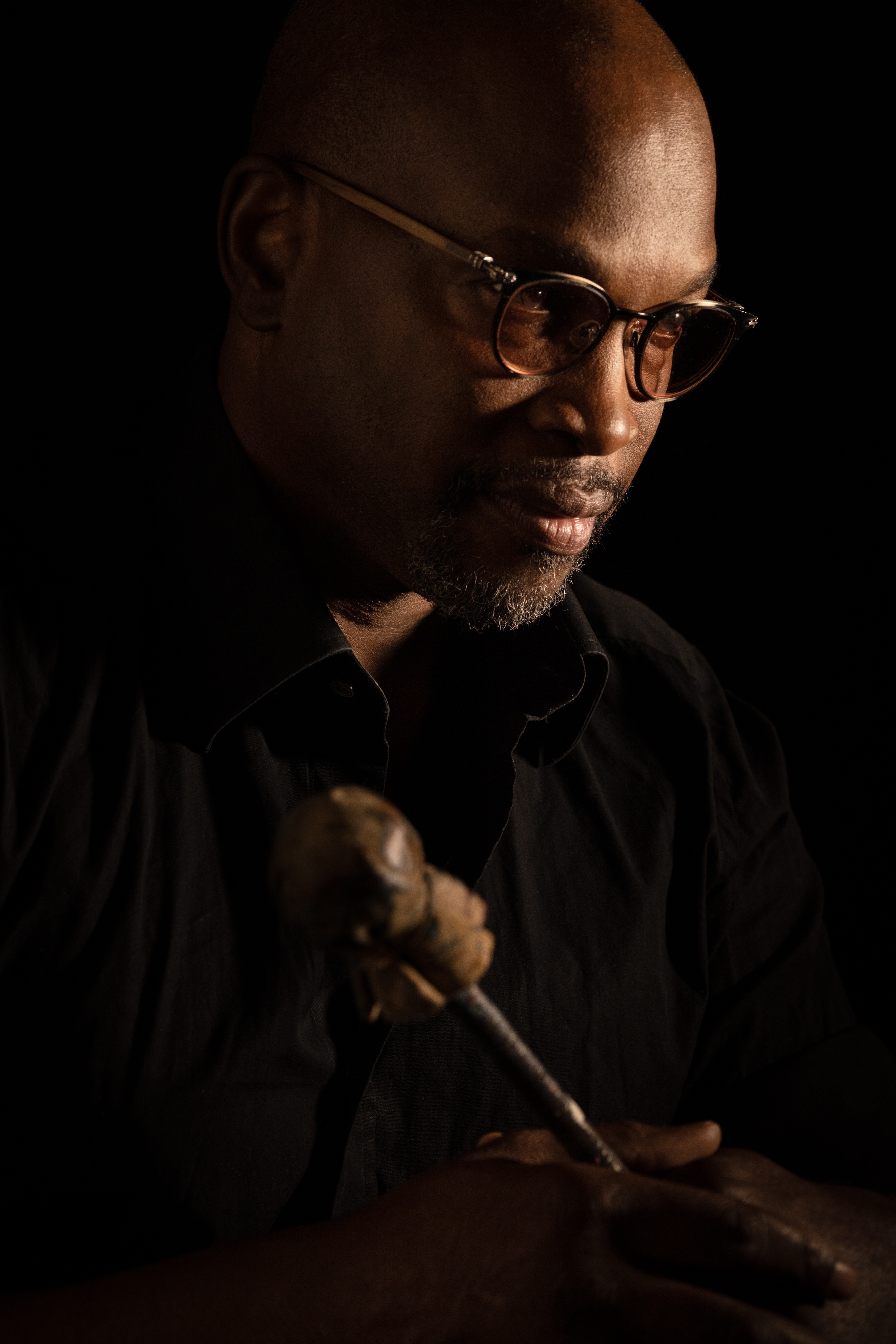
The New York-born artist Chaz Guest is a visual raconteur of the human condition, whose luminous canvases convey hope and resilience while challenging problematic cultural narratives. As such, his widely celebrated work shines radiant light on issues that pertain to the zeitgeist, while simultaneously exploring some of the darkest corners of US history. And it is testament to his talent that, over the course of a career that has earned him illustrious celebrity collectors like Angelina Jolie and Oprah, he has already witnessed his coruscating paintings grace the walls of iconic institutions, such as The White House and London’s National Portrait Gallery. The beguiling and complex compositions of the painter, who was first encouraged to concentrate on solely his art in the 1980s by none other than Christian Lacroix, find their conceptual genesis in an intuitive dance of free-flowing line work, which ultimately gives way to multiple layers of color – imbuing his canvases with both a sense of vibrant, expeditious movement and rich emotional depth. Drawing much of his source material from tales of resilience, his works thoughtfully suggest to the viewer that all history is made up of individual narratives that can be viewed from infinite perspectives, making them resonate as both intimately personal and profoundly universal. Flaunt caught up with the distinctive artist ahead of his upcoming show at RX & SLAG in Paris to deep dive into his creative process, and discuss what drives his idiosyncratic exploration of the human soul.
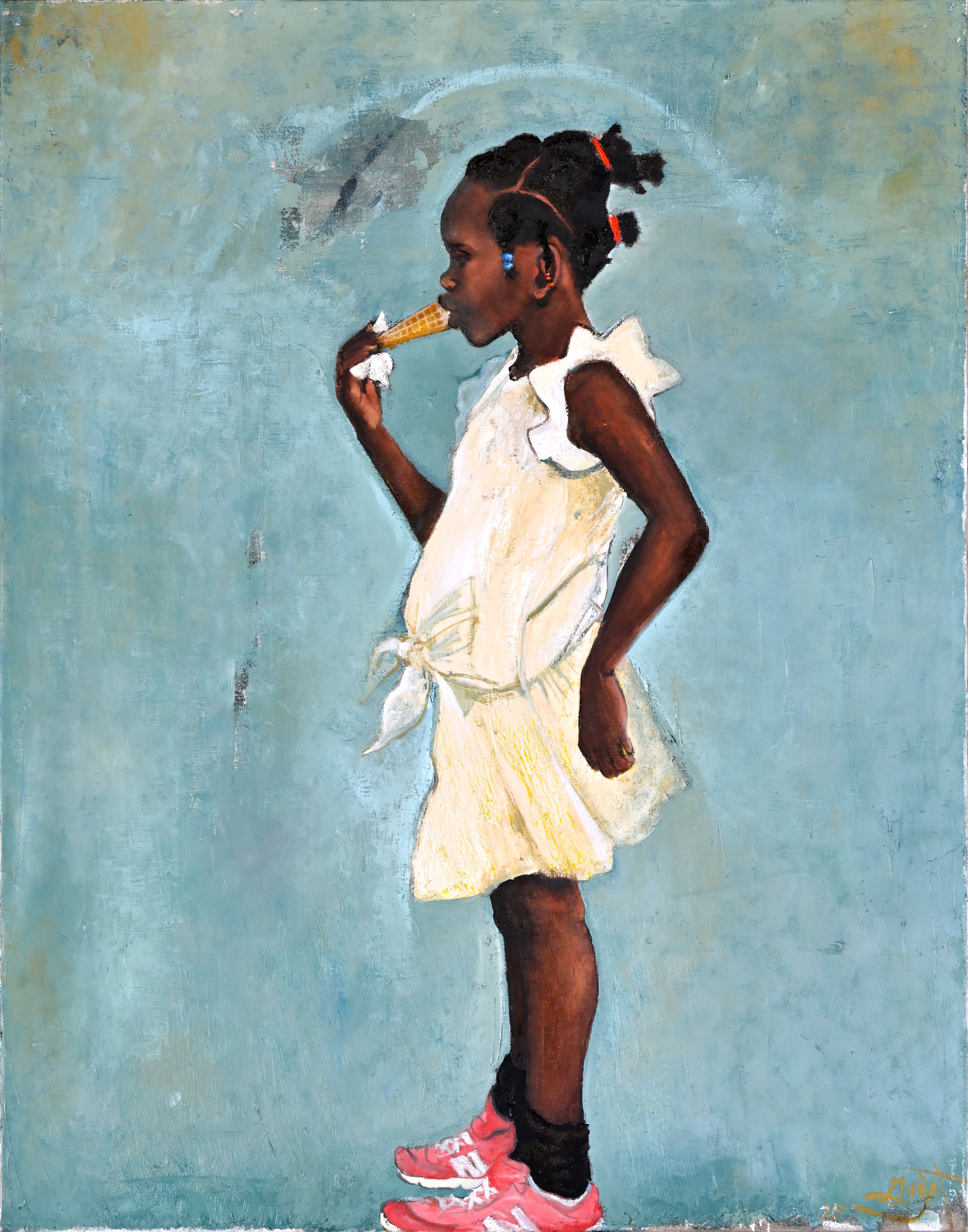
What would you say drives you as a painter, are you exploring the self, or are you seeking more to communicate to others?
I'm just communicating by articulating my experience of being here, using the medium of ink, oil, canvas and sculpture. I'm not interested in the self-discovery thing so much, so, it would definitely have to be about communicating with others, and with the world. I'm interested in finding what I call the hue of humanity, because it is very interesting being human – I mean, we don't even have the DNA to even understand how fantastic we are. I feel that my sole purpose as an artist is to motivate the next group of human beings coming into being, and to leave good stories. I've been painting for over 30 years, and I'm just giving it my best, and trying to navigate through not only the world of art, but through the world in general.
It sounds as though you have a deeply emotional drive, as opposed to intellectual?
Yes. I have no real understanding of it, though. Sometimes I wonder what it might be like to actually abandon thinking, and all of that, and just be very natural in the way that I approach painting, to approach it the way a tree or a beautiful plant grows, where information is unseen and coded. And I wonder if I can reach that as an artist. I mean, we are just energy and vibration, and I'm trying to take full advantage of that energy and be totally open to it, which is one of the reasons I love to paint live to music, and kind of capture the music on the canvas. Sometimes when I paint, I don't even know how the painting has been done – if I see it in a museum or an art show, I'm like, wow, I don't even remember making the first mark on the canvas.
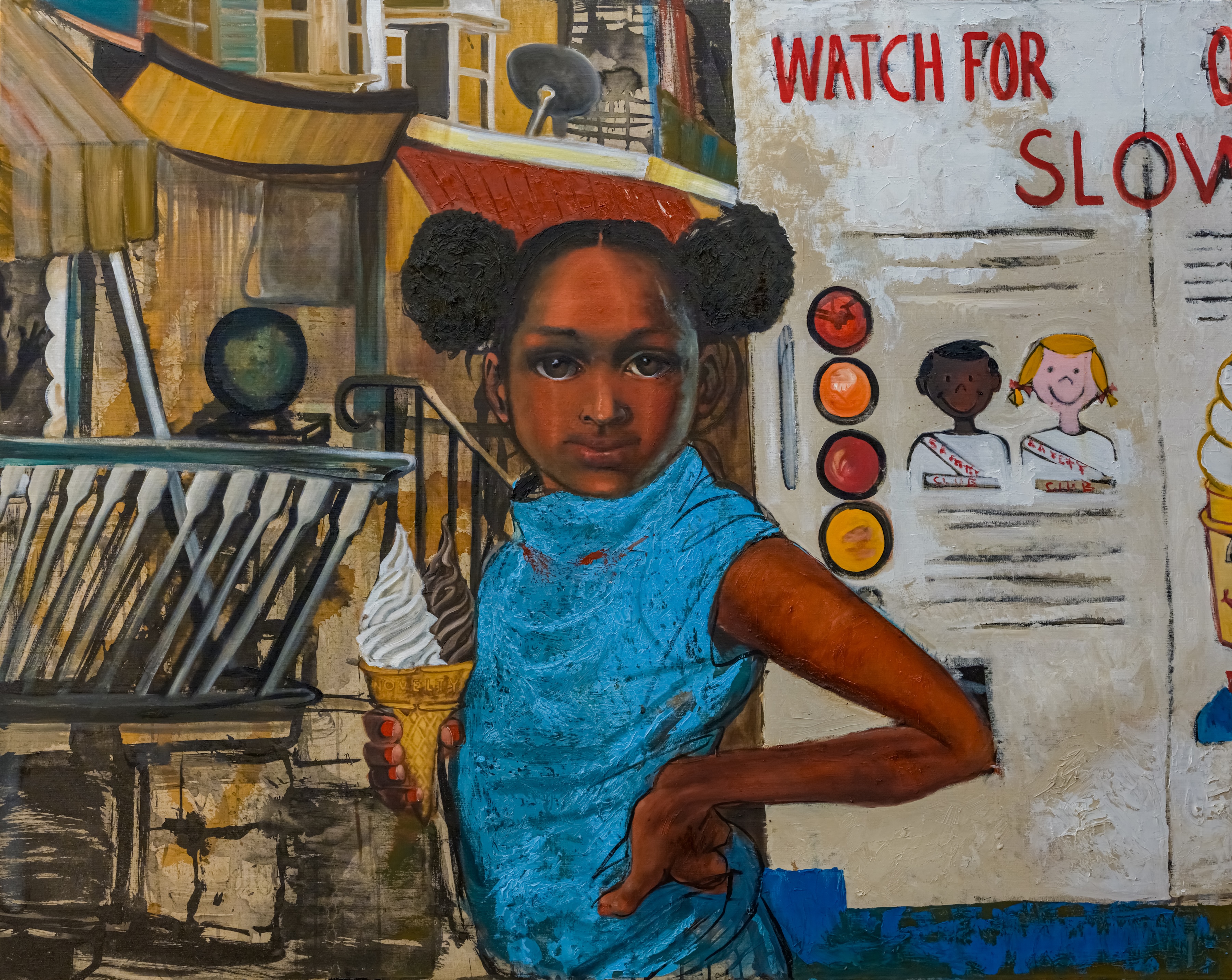
Would you say you are looking to explore a deeper reality than the one forwarded by prescribed societal structures?
Absolutely. If I were just here on this Earth listening to the news, and everything that's going on, then I would just simply be this black man, you know? But I feel I'm so much bigger than any narrative about my identity, and a society that someone else created. I have just never bought into that, and I don't let anyone shape my narrative. I'm aware of my culture very much. So, I'm aware of my ancestors, my great grandparents, great-grandparents, and so on, but I am a contemporary man spending my time on this planet trying to move purposefully, and exploring a mysterious universe with ink on canvas. I personally feel that the time I have here is all about creating stories, and I think that those stories will then naturally find their place. I believe if you're doing your thing, and moving hard with purpose, then the powers that be will find a place for your work after you are no longer here. The earth is a vibration, and once you can sink into the earth's vibration with your human vibration, there are amazing gifts to be gotten. And I guess that is what they call manifestation.
What was the first painting movement that really turned you on as an artist, and which would you say has had the most influence?
Possibly, when I discovered the Ashcan school, which was a movement that was very accurate at depicting a certain time. It was a mash-up of everything – politics, art, music, religion, and inner city turmoil – and it really resonated with the way I experienced Philadelphia when I moved there as a young child, which was during the time of The Black Panthers, when there was a lot of police brutality. Although the city was beat-up, it was absolutely beautiful to me. With my mom being a single mom, I never wanted to ask her for a dollar as a kid, so I used to draw Fred Flintstones cartoons for, like, 50 cents apiece, and that way I always had pockets full of quarters. My series Amusement Parks And Ice Cream was really inspired by that movement, and was biographical of that time. I was telling my story in the hope it would inspire and help strengthen those people who need to see their own image represented in paintings at the museums, because that didn't exist when I was coming up.
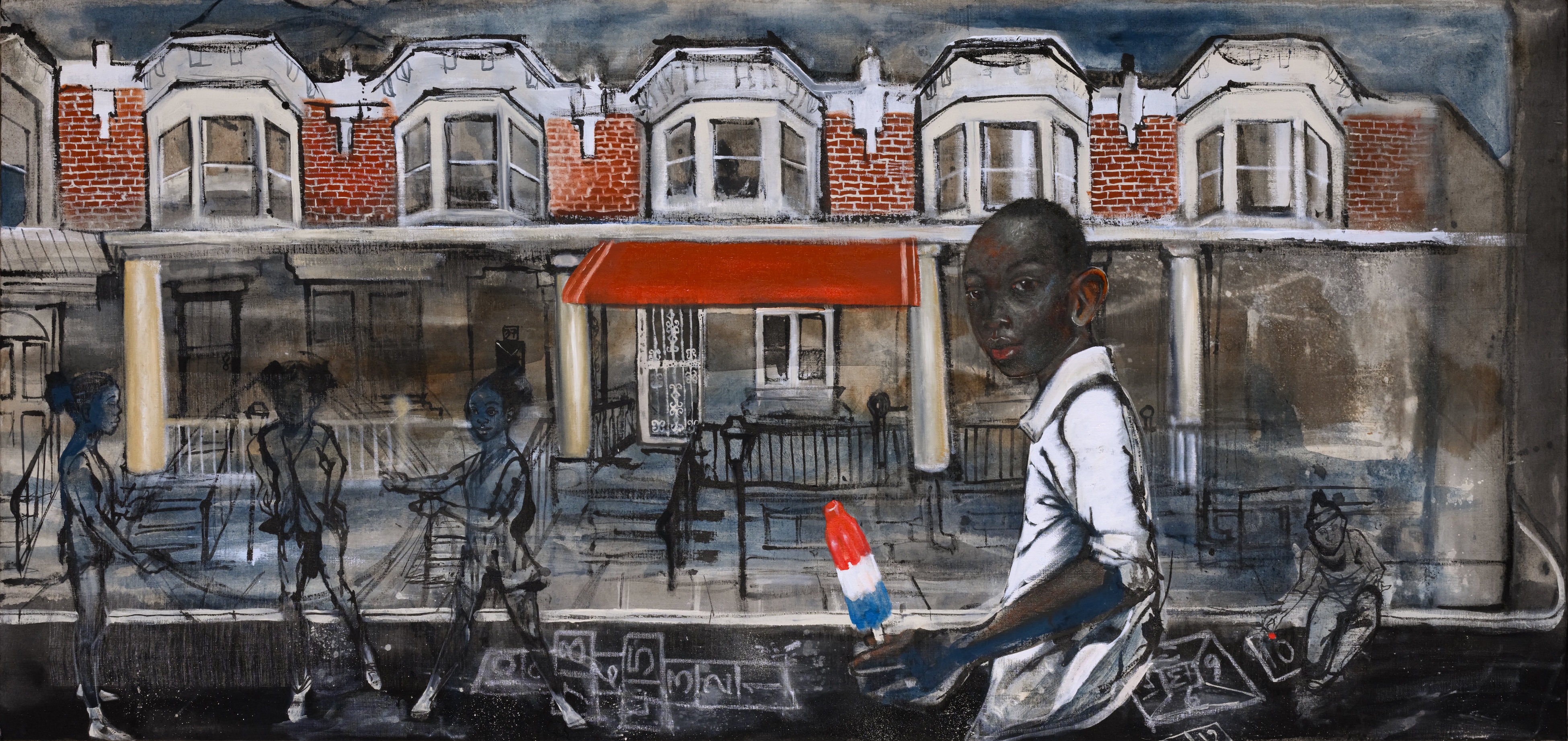
At what point did portraiture become an important medium to you as a painter?
I don’t know that it is important, but I think it came about because there was a time in my existence when I wanted to tell the story of a particular person, so I wound up doing portraiture. The piece that wound up in The White House is a good example. I just woke up one morning thinking about America and what has transpired through the years, and the evolution of the country, and I thought of the figure of Thurgood Marshall. So, I just picked up my brush to tell the story of Thurgood Marshall. That painting wound up in The White House for eight years under Obama, and that was something that was really unbelievable to happen. But, you know, where the paintings wind up is where they wind up. I really didn't ever think about the painting going into The White House. I just wanted to paint this man and tell his story on the canvas, and it just resonated with the President of the United States.
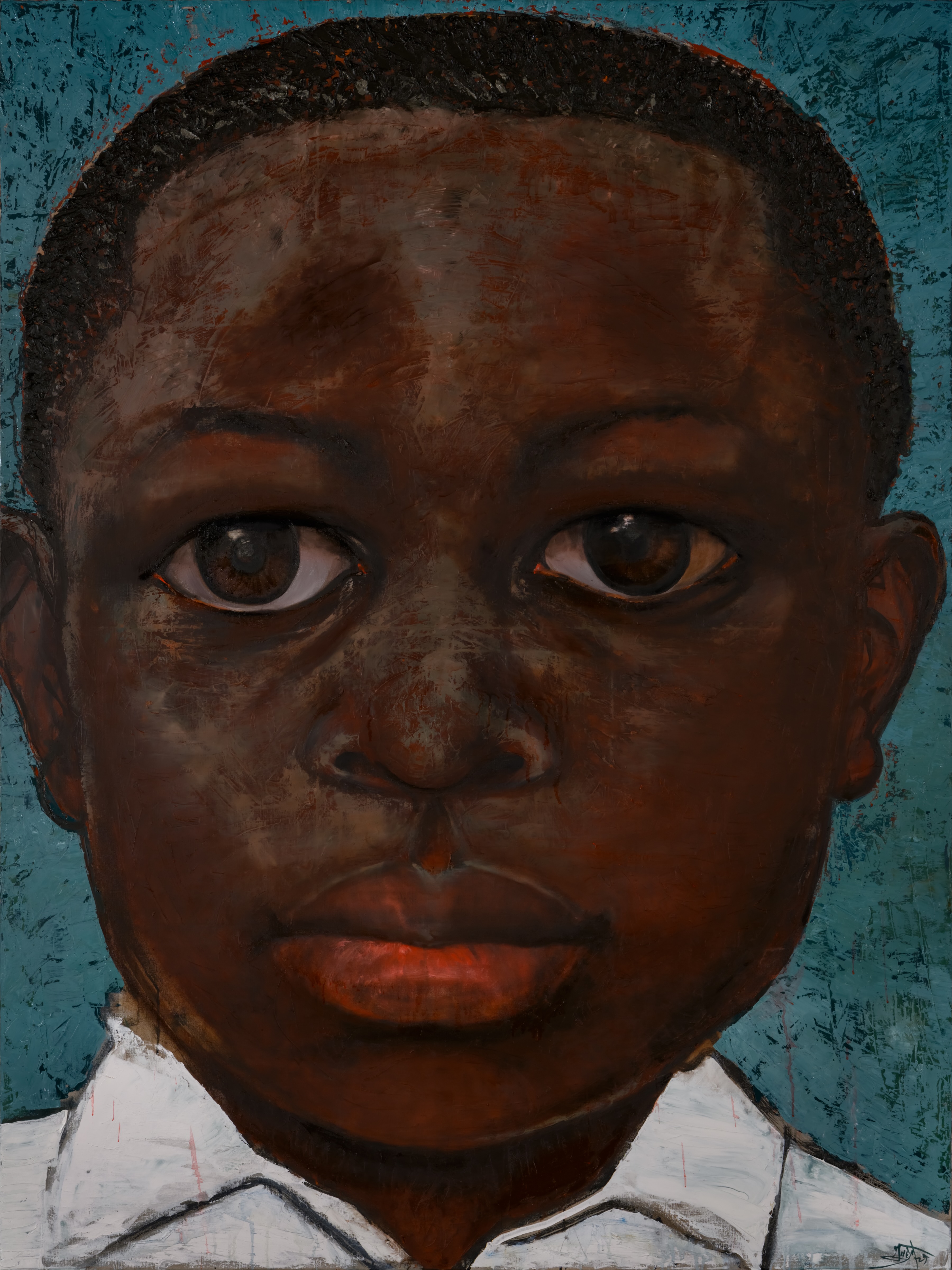
That was a very different time. Do you feel like the world is in a particularly turbulent moment right now?
I don’t see it that way. When you mention a term like turmoil, it has always been that way for people who look like me. Growing up the way that I have, and being African American; I probably have a very different experience from yours. I mean, everybody's had their problems in America, of course – the Irish, the Jewish, the Native Americans, the Japanese, and so on, but there's a unique story of the African American in that they were kidnapped. The African American had to stay here and get clobbered throughout the decades and centuries. I mean, I can personally trace my family tree back to Nigeria where they were kidnapped, so, when you mention the notion of now and turmoil, that means nothing for me. The only thing I know how to do is survive, and thank God that I have been blessed enough to create these paintings that can resonate with humanity no matter what color, age or race you are.
Chaz Guest exhibits in Paris at RX & Slag from October 18th - November 19th.